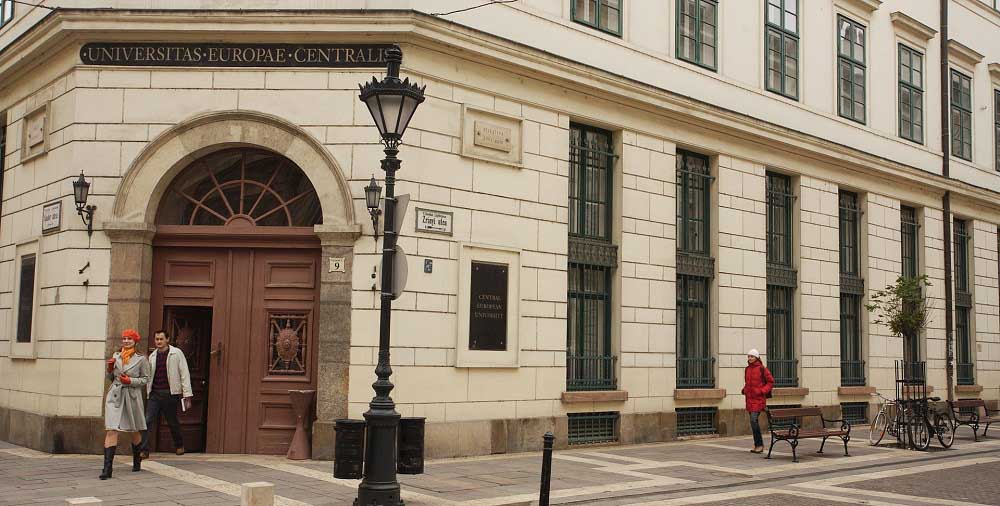Hungary: Central European University closure highlights 'erosion' of rule of law
Ruth Green, IBA Multimedia Journalist

In early December, after a 20-month legal standoff, Budapest’s most prestigious university announced it would be relocating to Vienna. The decision marks the end of a dispute with the Hungarian government over the university’s legal status, following changes to the higher education laws – part of a continuing assault on fundamental freedoms.
The Central European University (CEU) was established in 1991 by Hungarian-born financier George Soros. More than 1,400 students from around the world pass through its doors every year. In April 2017, MPs passed a bill placing restrictions on foreign-funded universities, requiring them to have a campus in their home country as well as in the capital.
The bill was viewed as part of a wider campaign targeting both the CEU – which is US registered – and other Soros-funded institutions. Critics argued it would restrict academic freedom in the country.
These anti-democratic, anti-rule of law forces should be a wake-up call to everyone that liberalism, the founding principle of post-WWII Europe, is in grave jeopardy
Mark Ellis
Executive Director, IBA
As required, CEU offered educational activities in the US certified by the authorities there. But, on 3 December, CEU announced it would launch a US degree programme in Vienna in September 2019. This, the university says, followed the Hungarian government's repeated failure to sign an agreement enabling CEU to remain in Budapest. ‘CEU has been forced out,’ said CEU President and Rector Michael Ignatieff in a statement. ‘This is unprecedented. A US institution has been driven out of a country that is a NATO ally. A European institution has been ousted from a member state of the EU.’
Mark Ellis, Executive Director of the IBA, says such moves highlight the growing threats to the rule of law in Europe today. 'These anti-democratic, anti-rule of law forces should be a wake-up call to everyone that liberalism, the founding principle of post-Second World War Europe, is in grave jeopardy,’ he says.
Justice Richard Goldstone, Honorary President of the IBA’s Human Rights Institute, has lectured at CEU. He says the move could have a detrimental impact on many students’ education. ‘It is indeed a tragedy that an outstanding institution has to close its doors in Budapest,’ he says. ‘To relocate the university to Vienna is a huge undertaking and will obviously make it difficult, if not impossible, to enrol new students for some time. It will be difficult enough to ensure that present students are able to complete their courses and to graduate.’
As CEU’s closure highlights growing restrictions on academic freedom, the weakening of the rule of law continues to manifest itself elsewhere in the country. On 5 December, Prime Minister Viktor Orban signed a decree guaranteeing that media conglomerate, the Central European Press and Media Foundation, remains exempt from regulatory oversight by the country’s media and competition authorities. The foundation was created earlier this year through the merger of more than 480 pro-government media outlets, but has been criticised for undermining press freedom. ‘In recent years, Hungary has suffered a series of curbs on the rule of law and now [this is] an added assault on the freedom of the media,’ says Goldstone. ‘Freedom of the media is an essential ingredient of any democracy and allows orthodox views to be challenged by vigorous debate.’
Two other controversial laws were passed on 12 December. One allows the government to set up a new court system that is overseen directly by the justice minister. The other, dubbed Hungary's 'slave law', raises the amount of overtime employers can demand their employees to work. European institutions have been under increasing pressure to take action against Hungary. In September, MEPs in the European Parliament voted to launch a disciplinary procedure against the country for alleged violations of the EU’s core values. Due to procedural setbacks, no action has taken place, but ultimately the EU could vote to suspend Hungary’s voting rights.
In the interim, Ellis says what's happening in Poland is a positive indication of the power European courts can wield to effect change. 'The European Court of Justice's (ECJ) recent ruling against Poland’s government has seemingly worked, forcing the government to reinstate a number of Supreme Court judges whom it had forced into early retirement,’ says Ellis. ‘Unlike the EU Council, which ultimately requires a unanimous vote by all Member States to impose sanctions, the EU Commission, working through the ECJ, shows that political and judicial enforcement can effectuate change.’
Hungary’s anti-immigration laws have also drawn the ire of the European Commission and other EU member states, who feel the country is not pulling its weight to alleviate the migrant crisis. In July 2018 Peter Szijjarto, Hungary’s minister of foreign affairs and trade, announced the country would follow the US and withdraw from the Global Compact for Safe, Orderly and Regular Migration – the first-ever international agreement to establish a common approach to international migration. UN members formally approved the non-legally binding agreement during talks held in Marrakech from 10-11 December. 164 states signed the agreement, with the noticeable absence of Hungary, the US, Poland, Austria and Australia, among others.
Hassiba Hadj-Sahraoui is a humanitarian affairs advisor to Médecins Sans Frontières. She says countries that refuse to sign the Global Compact should not think they are 'in a lawless area' and that the wave of anti-immigration laws and sentiment in Hungary and elsewhere should act as a cautionary tale to the international community. ‘What we are seeing is the erosion of the rule of law in each of these countries,’ she says. 'It starts maybe with legislation against migrants, refugees or asylum seekers, but then it targets the independence of the judiciary. Everything is linked, so let’s not think that it’s just about addressing the migrants, it’s about the checks and balances that we have in every country. It's also about much more fundamental values and attachment to the rule of law.’
